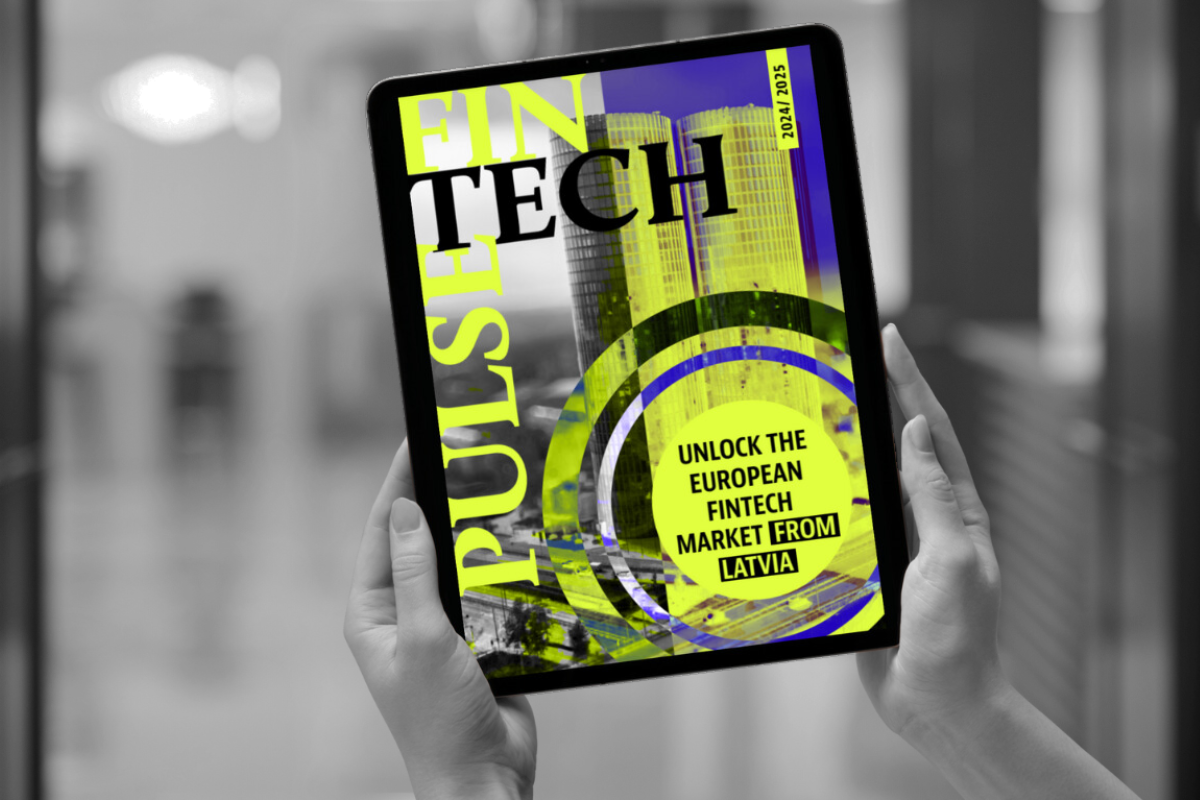Fintech
Could DehydraTECH(TM) CBD be Worth $3 Billion a Year to Lexaria?

New York, New York–(Newsfile Corp. – March 9, 2021) – PCG Digital — Hypertension, or high blood pressure as it’s commonly known, affects over three million Americans every year and is a primary or contributing cause of death for 25% of them. On a global scale, hypertension kills roughly 7.6 million people per year.
Lexaria Bioscience, a Canadian biotech firm specializing in cannabinoid research, is hoping to change those numbers. DehydraTECH CBD, the company’s revolutionary oral deliverable for hypertension sufferers, is in human clinical trials right now and results are promising.
“Our 2018 human clinical trial showed that DehydraTECH CBD lowers blood pressure by about 5% after just a single 90 milligram dose,” said Lexaria CEO Chris Bunka. “Generic CBD doesn’t do that. Our objective in our new 2021 clinical studies is to evidence a 10% or greater drop in blood pressure to be competitive with industry demands.”
The 2018 European study also showed evidence of DehydraTECH CBD facilitating higher volumes of blood flow to the brain and faster delivery of CBD into the bloodstream. Ensuing studies will determine what that means for hypertension sufferers.
New Human Clinical Studies are Underway in 2021
Lexaria currently has three human clinical studies about to commence, using 300 to 450 milligram doses. In comparison, GW Pharmaceuticals is administering up to 1200 milligrams of Epidiolex, an FDA-approved CBD-based anti-seizure medicine for children, and even at those higher doses side effects have been minimal.
“In the hypertension industry, drugs that provide a 10 to 20 percent reduction in blood pressure are generally successful,” Bunka adds. “We are confident we can get to that level and expect our studies to provide evidence supporting that over the next six to nine months.”
DehydraTECH CBD utilizes a patented dehydration process that changes how the body senses and absorbs drugs orally. In earlier clinical trials, DehydraTECH CBD has been proven to deliver over 300% more CBD than generic CBD in less than 30 minutes.
Positive results in the human clinical studies would provide more evidence for consideration of DehydraTECH CBD as a regulated form of CBD, a status in the cannabinoid sector that only Epidiolex has earned to date. Bunka and his team are confident they will get there.
Hypertension Relief is a $30 Billion Market
There are obvious health care benefits to developing an effective cannabis-based hypertension treatment. Financially, a success in this area would be huge for Lexaria. In 2019, the market for antihypertensive drugs was worth $26.1 billion.
By comparison, the pediatric anti-seizure market that Epidiolex serves is worth ~$1 billion per year. GW Pharmaceuticals was just purchased for $7.2 billion by Jazz Pharmaceuticals, a major Big Pharma player. In the United States alone, there are three antihypertension drugs that have recorded between $1 and $3 billion in annual sales:
-
Diovan, manufactured by Novartis, had $60.8 billion in lifetime sales between 1997 and 2012. It has since been replaced by a generic version called Valsartan.
-
Amlodipine, a calcium channel blocker known more commonly as Norvasc, has been on the market since 2005. By September 2019, it had been prescribed 75,201,622 times.
-
Lisinopril, a medicine used to treat high blood pressure and heart failure, was prescribed over 89 million times within one year of its introduction in July 2011.
None of these drugs are cannabis-based and each has unwanted side effects. Assuming Lexaria reaches that level, the company could be looking at a drug with over $1 billion in annual revenue after FDA approval. What might Lexaria be worth at that point?
With existing patents granted in the EU and Australia already secured for the treatment of heart disease using cannabinoids, Lexaria is confident it will receive regulator approvals in multiple geographic markets in due time. Investors seem to agree. As of this morning, Lexaria (LEXX) was up over 25% since first listing on Nasdaq in January.
Lexaria is Open to Partnership Opportunities
CEO Bunka sees the opportunity and is open to partnering with a larger company. “Lexaria would be open to partner with Big Pharma to deliver this potentially life-saving treatment,” he said. “Our business model includes out-licensing our technology for appropriate royalty streams.”
Companies with a royalty revenue stream have been known to earn a valuation of up to 30 times annual revenue. If you do the math on the partnership possibilities, Lexaria could be looking at valuations as high as GW Pharmaceuticals recently reached. That’s not unrealistic in this sector.
With Lexaria, it’s possible to happen soon as they are not reliant on government funding to conduct clinical studies: All existing trials are 100% funded from internal company resources. Therefore, the ramp-up to commercialization can be faster, and these potential revenues, can have a significant impact on its current market cap of only $35 million.
“The Jazz acquisition of GW shows that Big Pharma is finally taking cannabinoid research and CBD-based medical treatments seriously,” Chris Bunka said. “One of the big benefits of CBD is its modest side effect profile – pharma simply HAS to research this thoroughly in the interests of public health.”
This story will be worth keeping an eye on as it unfolds. Results from Q1 studies of DehydraTECH CBD will be made available starting around May, with human clinical study results to follow soon thereafter. If all goes well, the path to FDA approval could become clearer. Relief for hypertension sufferers can’t come soon enough.
Disclaimer:
This communication was produced by PCG Digital Holdings, LLC, an affiliate of PCG Advisory Inc., (together “PCG”). PCG is an integrated investor relations, communications and strategic advisory firm. The information contained on this may be ‘Paid Advertising’ for purposes of Section 17(b) of the Securities Act of 1933, as amended (together with the rules and regulations there under, the “Securities Act”). PCG may be compensated by respective clients for publicizing information relating to its client’s securities. For more information in terms of compensation received for services provided by PCG, see the pertinent advertising materials relating to the respective client. By accessing this Site and any pages thereof, you agree to be bound by the Terms of Use and Privacy Policy.
PCG is not a registered or licensed broker, dealer, broker-dealer, investment adviser nor investment manager, nor does PCG engage in any activities that would require such registrations. PCG does not provide investment advice, endorsement, analysis or recommendations with respect to any securities, and its services to or statements about its clients should never be construed as any endorsement of or opinion about any security of any client. No information contained in this communication constitutes an offer to sell, a solicitation of an offer to buy, or a recommendation of any security or any other similar product or service regardless of whether such security, product, or service is referenced in this communication. Further, nothing in this communication is intended to provide tax, legal, or investment advice and nothing in this communication should be construed as a recommendation to buy, sell or hold any investment or security or to engage in any investment strategy or transaction. For full disclaimers, including compensation received for professional services, please visit www.pcgadvisory.com/disclosures.
Contact:
Fintech
Fintech Pulse: A Daily Dive into Industry Innovations and Developments

The financial technology sector continues to evolve at a rapid pace, offering innovations that disrupt traditional paradigms. Today’s briefing underscores fintech’s diverse growth avenues: from substantial venture capital plays and strategic partnerships to groundbreaking implementations in lending. Here’s a closer look at recent developments shaping the landscape.
Synapse’s Comeback and Andreessen Horowitz’s Strategic Bet
Source: Axios
Synapse, a financial infrastructure company previously embattled by controversy, is staging a remarkable comeback, backed by none other than venture capital heavyweight Andreessen Horowitz (a16z). With this new infusion of funds, Synapse aims to consolidate its position as a premier platform for building financial services tools.
This resurgence demonstrates the resilience of the fintech ecosystem, where innovation often prevails over turbulence. Synapse’s renewed vigor also signals that top-tier investors remain bullish on infrastructural solutions pivotal to the future of digital finance. Andreessen Horowitz’s participation not only validates Synapse’s model but also underscores the VC giant’s enduring interest in fintech infrastructure, even amid global economic uncertainties.
Analysis:
This partnership exemplifies the dynamism within fintech, highlighting the interplay of innovation, capital, and resilience. It also raises questions about the broader implications of giving second chances to firms with turbulent histories. While Synapse’s evolution could inspire others, it also places a spotlight on governance and accountability in high-growth sectors.
Israel’s Fintech Scene Gets a Boost with Investment in Finova Capital
Source: Calcalistech
Israeli fintech startup Finova Capital has raised an impressive $20 million in a funding round led by prominent institutional investors. This marks a significant milestone for the company as it seeks to expand its suite of financial solutions aimed at underserved markets.
Israel’s fintech ecosystem has long been recognized as a hub of innovation, and this latest investment only reinforces its global standing. Finova Capital’s focus on empowering smaller businesses and fostering financial inclusivity aligns with emerging trends where tech-driven solutions bridge critical gaps in financial services.
Analysis:
With this funding, Finova is poised to enhance its technological offerings while contributing to economic inclusion. However, the broader fintech industry will watch closely to see how the company leverages this capital amid increasing competition from regional and global players.
India’s Yubi Plans a Fundraising Push
Source: Bloomberg
Yubi, a prominent Indian fintech platform backed by Insight Partners, is reportedly preparing for a new fundraising round. Having already established itself as a leader in credit infrastructure, Yubi aims to bolster its offerings and expand its market footprint.
India’s fintech landscape is witnessing explosive growth, with platforms like Yubi playing a critical role in the credit ecosystem. Yubi’s planned fundraising reflects the broader appetite for scaling solutions that streamline credit access, particularly in emerging markets where traditional lending models often fall short.
Analysis:
This development highlights two key trends: the increasing reliance on credit platforms in high-growth economies and the strategic role of international investors like Insight Partners in driving fintech innovation. Yubi’s expansion plans could set a precedent for other regional fintech players seeking to scale amid global economic headwinds.
Provenir and Hastings Financial Services Win Global Recognition
Source: Business Wire
In a testament to the transformative power of digital lending solutions, Provenir and Hastings Financial Services have been jointly recognized for the Best Digital Lending Implementation at the IBSi Global Fintech Innovation Awards. This accolade underscores the success of their collaboration in modernizing the lending process through cutting-edge technology.
Provenir’s advanced decision-making platform and Hastings Financial Services’ lending expertise have delivered a solution that significantly enhances user experience, operational efficiency, and risk management. Such innovations highlight the increasing role of partnerships in advancing fintech’s digital transformation.
Analysis:
This recognition not only validates the efficacy of digital lending but also emphasizes the importance of partnerships in driving innovation. It signals to the industry that collaboration can be a powerful tool for staying ahead in a rapidly evolving marketplace.
Microf and Quantum Financial Technologies Forge New Alliances
Source: PR Newswire
Microf, a financial solutions provider, has announced a strategic partnership with Quantum Financial Technologies. This collaboration aims to expand lending solutions for contractors, providing streamlined access to capital for businesses in need of flexible financing options.
This partnership is a timely response to the growing demand for specialized financial products in niche markets. By leveraging Quantum’s technology, Microf can now offer more tailored solutions, particularly to contractors navigating complex financial requirements.
Analysis:
This development reflects a growing trend: the diversification of fintech offerings to serve specific market segments. As competition in mainstream fintech intensifies, targeting underserved niches could become a defining strategy for success.
Key Takeaways for the Fintech Ecosystem
- Resilience in Fintech Funding: Despite economic uncertainties, venture capital continues to fuel innovative fintech players like Synapse and Finova Capital.
- Regional Growth Stories: From Israel to India, fintech ecosystems are thriving, attracting global attention and investment.
- Collaboration as a Catalyst: The success of partnerships like Provenir-Hastings and Microf-Quantum underscores the importance of strategic alliances.
- The Power of Recognition: Awards like the IBSi Fintech Innovation Awards validate industry achievements, inspiring others to push the envelope.
- Focus on Inclusion: Whether through credit platforms or lending solutions, fintech is playing a pivotal role in fostering financial inclusivity worldwide.
Looking Ahead: Challenges and Opportunities
The fintech sector’s journey is far from linear. Regulatory complexities, technological disruptions, and market volatility remain persistent challenges. However, as seen in today’s developments, the opportunities far outweigh the risks. By prioritizing innovation, collaboration, and inclusivity, fintech players can navigate the complexities of the global financial landscape.
This moment in fintech history is pivotal. It’s a time for bold decisions, strategic partnerships, and a commitment to bridging financial divides. As industry players rise to the occasion, the road ahead promises a future where technology and finance intertwine to empower individuals and businesses alike.
The post Fintech Pulse: A Daily Dive into Industry Innovations and Developments appeared first on News, Events, Advertising Options.
Fintech
Fintech Latvia Association Releases Fintech Pulse 2024: A Guide to Latvia’s Growing Fintech Hub

The Fintech Latvia Association has launched the latest edition of its annual publication, Fintech Pulse 2024, unveiling insights and resources that position Latvia as a thriving hub for European fintech.
Announced at this year’s Fintech Forum, the magazine is now available in digital format, offering a comprehensive guide for fintech professionals and entrepreneurs navigating the Latvian market and exploring its advantages.
This issue covers essential topics, from support tools provided by Latvijas Banka and newcomer roadmaps to Riga’s investor resources and fintech education opportunities. Readers will find the latest fintech news from Latvia, coverage of this year’s key industry events, and member insights on the future of fintech. The Fintech Landscape section provides a comprehensive overview of the Latvian fintech ecosystem.
Tina Lūse, Managing Director of Fintech Latvia Association, expressed excitement about the ecosystem’s growth: “We are excited to unveil the third annual edition of Fintech Pulse. This year has been pivotal for our ecosystem, and together with public sector stakeholders, we are enhancing financial inclusion, democratizing investments, and driving innovation throughout the sector. This is a testament to Latvia’s emergence as a fintech hub, establishing itself as an equal partner in innovation and support within the Baltic region.”
Minister of Finance Arvils Ašeradens highlighted Latvia’s fintech potential in the magazine, stating: “Latvia has already made strides in adapting its regulatory framework to support a stable financial system. Now, we encourage financial market players to invest in modern technologies to meet the growing demand for inclusive financial services and solidify Latvia’s position in the fintech landscape. We are confident that with the combined offer of the government, Latvijas Banka and Riga city, we are a great place to start your next scalable European FinTech!”
Minister of Economics Viktors Valainis expressed Latvia’s ambition in the magazine, stating: “Latvia wants to become a WEB 3.0. innovation hub and solidify itself as one of the leaders of a newly regulated EU crypto-asset market. We welcome international companies to choose Latvia, a flexible and fast-paced country, where you can obtain a MICA license in just 3 months. Open your office in Latvia, receive a MICA license and serve the whole EU market!”
The Fintech Latvia Association brings together fintech and non-banking financial service providers to represent their interests at both the national and international levels. It promotes sustainable development in Latvia’s financial sector by fostering reliable, responsible, and long-term industry practices that earn trust from consumers and regulatory authorities. The association is committed to supporting innovation and growth opportunities within the fintech landscape.
The post Fintech Latvia Association Releases Fintech Pulse 2024: A Guide to Latvia’s Growing Fintech Hub appeared first on News, Events, Advertising Options.
Fintech
Quantum Security and the Financial Sector: Paving the Way for a Resilient Future

The World Economic Forum (WEF) has released a pivotal white paper in collaboration with the Financial Conduct Authority (FCA), titled “Quantum Security for the Financial Sector: Informing Global Regulatory Approaches”. This January 2024 publication underscores the urgent need for global cooperation as the financial sector transitions from a digital economy to a quantum economy, highlighting both the immense opportunities and cybersecurity challenges posed by quantum computing.
Quantum: A Double-Edged Sword for Finance
Quantum computing offers transformative benefits for the financial sector, such as accelerated portfolio optimization, enhanced fraud detection, and improved risk management. Yet, it simultaneously threatens the very foundation of cybersecurity. With quantum’s ability to break traditional encryption methods, sensitive data and financial transactions face significant risks. The white paper warns that such vulnerabilities could erode trust in the financial system and destabilize global markets.
The urgency to prepare is evident, with some quantum threats, such as “Harvest Now, Decrypt Later” attacks, already emerging. Governments and regulators, including the United States with its National Security Memorandum on Quantum (2022), have begun advocating for quantum security readiness by 2035. However, as noted in the paper, transitioning to a quantum-secure infrastructure is a monumental task requiring unprecedented coordination between regulators, industry leaders, and technology providers.
A Collaborative Framework: Four Guiding Principles
To address the complex challenges posed by quantum technologies, the WEF and FCA have proposed four guiding principles to inform global regulatory and industry approaches:
- Reuse and Repurpose: Leverage existing regulatory frameworks and tools to address quantum risks, rather than creating entirely new systems.
- Establish Non-Negotiables: Define baseline requirements for quantum security, ensuring consistency and interoperability across organizations and jurisdictions.
- Increase Transparency: Foster open communication between regulators and industry players to share best practices, strategies, and knowledge.
- Avoid Fragmentation: Prioritize global collaboration to harmonize regulatory efforts and avoid inconsistencies that could burden multinational organizations.
These principles aim to create a unified, forward-looking strategy that balances innovation with security.
A Four-Phase Roadmap for Quantum Security
The white paper introduces a phased roadmap to help the financial sector transition toward quantum security:
- Prepare: Raise awareness of quantum risks, assess cryptographic infrastructure, and build internal capabilities.
- Clarify: Formalize engagement between stakeholders, map current regulations, and model the cost and complexities of transitioning to quantum-safe systems.
- Guide: Address regulatory gaps, translate technical standards into actionable frameworks, and develop industry-wide best practices.
- Transition and Monitor: Implement cryptographic management modernization and adopt iterative, adaptable regulatory approaches to remain resilient in the quantum economy.
This roadmap emphasizes adaptability, encouraging stakeholders to continuously refine their strategies as quantum technologies evolve.
The Path Forward: Collaboration as a Catalyst
The transition to a quantum-secure financial sector is not merely a technological shift but a comprehensive rethinking of how industries and regulators approach cybersecurity. The interconnected nature of global finance means that collaboration between mature and emerging markets is crucial to avoid vulnerabilities that could undermine the entire system.
Regulators and financial institutions must act with urgency. As Sebastian Buckup, Head of Network and Partnerships at the World Economic Forum, notes in the report:
“The quantum economy era is fast approaching, and we need a global public-private approach to address the complexities it will introduce. We welcome this opportunity to collaborate with the FCA to chart the roadmap for a seamless and secure transition for the financial services sector.”
Similarly, Suman Ziaullah, Head of Technology, Resilience, and Cyber at the FCA, emphasizes:
“Quantum computing presents considerable opportunities but also threats. The financial sector relies heavily on encryption to protect sensitive information, the exposure of which could cause significant harm to consumers and markets. Addressing this requires a truly collaborative effort to transition to a quantum-secure future.”
Global Impact: Ensuring Resilience in an Evolving Landscape
As quantum technologies mature, they will redefine the landscape of cybersecurity. The financial sector, as one of the most sensitive and interconnected industries, must prioritize preparedness to ensure stability, protect consumers, and maintain trust.
The Quantum Security for the Financial Sector: Informing Global Regulatory Approaches white paper offers an essential foundation for continued dialogue and action. By adhering to the guiding principles and roadmap outlined in the report, stakeholders can navigate this transformation with foresight and cooperation.
The full report, published by the World Economic Forum, highlights the need for a unified global approach to quantum security, serving as a rallying call for industry and regulatory leaders alike.
Source: World Economic Forum, “Quantum Security for the Financial Sector: Informing Global Regulatory Approaches”, January 2024.
The post Quantum Security and the Financial Sector: Paving the Way for a Resilient Future appeared first on News, Events, Advertising Options.
-

 Fintech6 days ago
Fintech6 days agoFintech Pulse: Industry Updates, Innovations, and Strategic Moves
-

 Fintech5 days ago
Fintech5 days agoFintech Pulse: Daily Industry Brief – A Dive into Today’s Emerging Trends and Innovations
-

 Fintech PR6 days ago
Fintech PR6 days agoTAILG Represents the Industry at COP29, Advancing South-South Cooperation with Low-Carbon Solutions
-

 Fintech PR7 days ago
Fintech PR7 days agoROLLER Releases 2025 Attractions Industry Benchmark Report, Unveiling Key Trends and Revenue Strategies
-

 Fintech PR5 days ago
Fintech PR5 days agoAlkira Ranked 25th Fastest-Growing Company in North America and 6th in the Bay Area on the 2024 Deloitte Technology Fast 500™
-

 Fintech PR7 days ago
Fintech PR7 days agoThe CfC St. Moritz Announces New Speakers from BlackRock, Binance, Bpifrance, Temasek, PayPal, and More for Upcoming 2025 Conference
-

 Fintech PR5 days ago
Fintech PR5 days agoCorinex Ranked Number 331 Fastest-Growing Company in North America on the 2024 Deloitte Technology Fast 500™
-

 Fintech PR6 days ago
Fintech PR6 days agoGift Card Market to Reach USD 1,897.46 Billion Globally by 2030, Driven by Digital Adoption and Corporate Gifting | Credence Research Inc.










